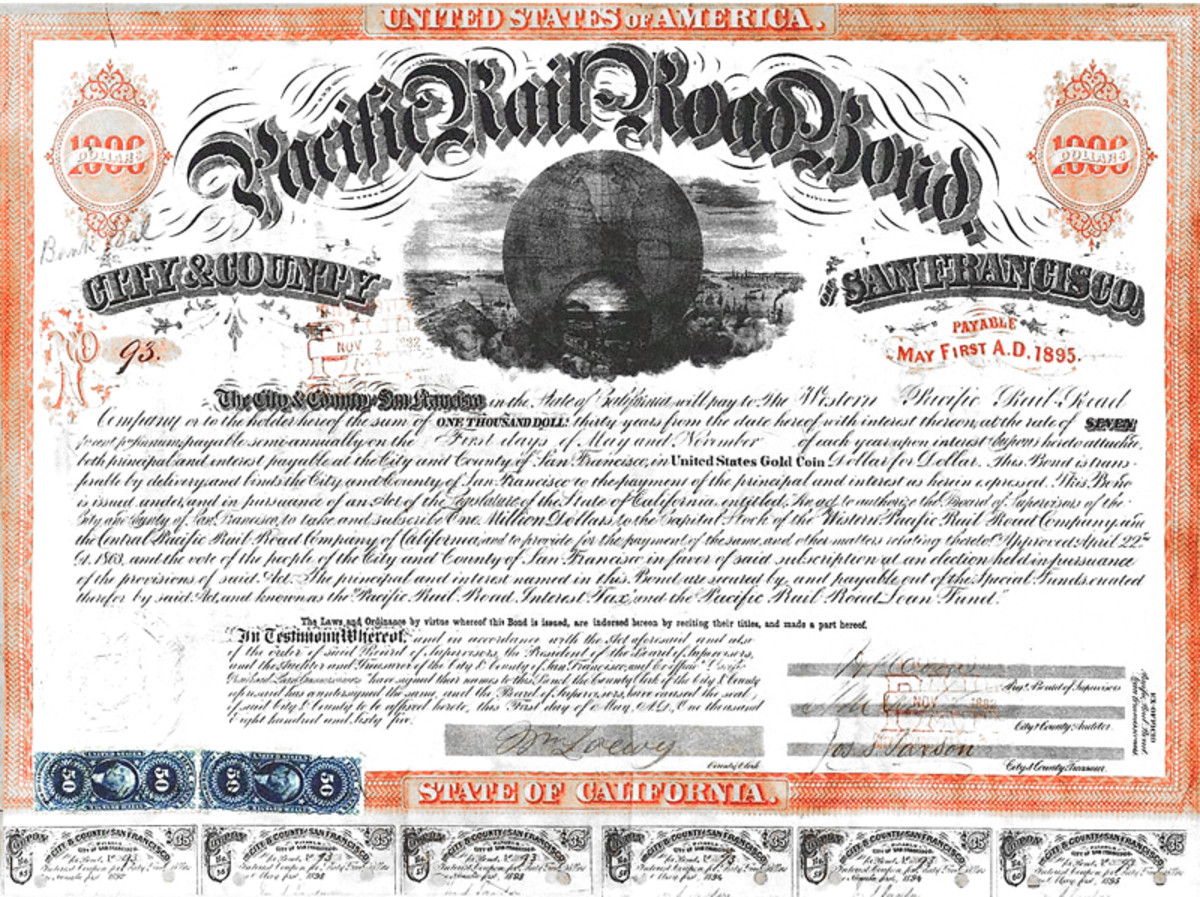How to Pick a Municipal Bond Fund: Choosing and buying a muni bond
Make Money Writing Online Articles:
- Signup For HubPages
It's Free and easy... plus it's a great way to make a residual income!
What are Municipal Bonds?
Municipal Bonds are debt obligations that the government entities issue to investors which are exempt from certain income taxes. In essence, they are simply loans made to the government so that they can continue to carry out the necessary day-to-day functions and special projects that keep everything running (paving roads, stop lights, building bridges, maintaining parks, up-keeping sewer and gas lines, etc...). These bonds can be issued by cities, states, and counties, other forms of Government, and even certain private corporations that serve the public interest (such as hospitals and utility companies). Municipal bonds, often referred to as muni bonds, has long been a popular investment among investors in the highest tax-brackets.
The tax exemption on these bonds can be at applied at the federal, state, and local levels. The exact exemption depends on the muni bond you choose to purchase, so some may not be tax-exempt from federal taxes, but you will not be taxed at state and local levels...
There are nine different types of municipal bonds:
- General-Obligation Bonds (G-O Bonds): The most common, and generally the safest type of muni bonds. These municipal bonds have the highest ratings and pay the lowest interest, but are backed by the government entity issuing the bond (so, in the rare case of default, an investor will still have their money returned).
- Limited-Tax Bonds (or Taxable Municipal Bonds): These muni bonds are backed by the government entity issuing the bond, but are not federally tax-exempt. They are only tax-exempt on the particular government entity that is issuing the bond (for example a State that wants to build a Baseball Diamond... The Federal Government would not subsidize the loan, and the only tax-break would be at State or local levels)
- Revenue Bonds: These types of bonds are based on revenue repayments produced by projects that earn money (toll roads, airports, sewer systems, etc). Basically, as revenue is earned, the debt is repaid to the investor with interest.
- Industrial Development Bonds: These are corporate bonds issue by development agencies that are set up by either the state or local government. These bonds can be taxed if more than 10% of the proceeds are used for private (non-governmental purposes). Certain types of housing and waste management projects are funded by industrial development bonds.
- Anticipation Notes: These are short term notes that offer higher yields and short maturities. These muni bonds are generally grouped together into mutual funds rather than individual obligations for private investors.
- Authority Debt: Similar to Revenue bonds, these are bonds that can be short or long-term and issued for pojects such as public housing development and publicly owned utilities.
- Option Tender Bonds: Muni bonds that can be liquidated (after a determined waiting period) before the maturity of the bond at the full face-value of the bond.
- Floaters: These are bonds with fluctuating interest rates. The initial principle stays the same but the interest rate changes based on a certain index (such as bond rates, inflation, or the U.S. Treasury Bill)
- Insured Tax-Exempt Bonds: These are bonds that are backed by private insurers. Without the assurance of the insurers these debts would have a lower credit rating (subsequently, the yields are generally not as high because of this private protection of capital)
For more information on the different muni bonds and muni bond mutual funds available to private investors, I would recommend checking out Fidelity, or Vanguard for a list of the current yields.
3 Things you Should Check Before Buying A Municipa Bond Fund:
As I highlighted in the portion of the article above, there are a lot of different types of Muni Bonds available for private investors, and it is very important that you look over all the information before choosing one or a few that will work for you. With that said I want to highlight what I believe to be the most important aspects of a Municipal Bond Fund... Taxes, Performance, and Expense Ratios:
1. Pay Attention to Taxes:
Make very certain you are looking at what taxes you will be subject to based on the inidvidaul fund you choose. These can include state income taxes, federal and state capital gains tax, and even an alternative mininimum tax. While Muni Bond Fund Managers will generally try to minimize the tax effects for their shareholders, it is important to look over the tax information in the prospectus to see what taxes you will be responsible for as an investor. It is often wise to speak with your tax advisor before a large Muni Bond is purchased so there are no surprises at the end of the year.
2. Compare Past Performance:
Active bond fund managers have their past performance tracked over many years, so it should be easy to compare and contrast a fund based on independent peer group rankings. Websites like Morningstar, Fidelity, and Vanguard (links above), all have this information readily available. While past performance is not necessarily an indication of the future return, it is good information to examine.
3. Look at Expense Ratios:
Like any other mututal fund you buy, it is important to minimize your expense ratios so that you get a better return on your investment. Be sure to look for muni funds with a low expense ratio compared to it's peers.






